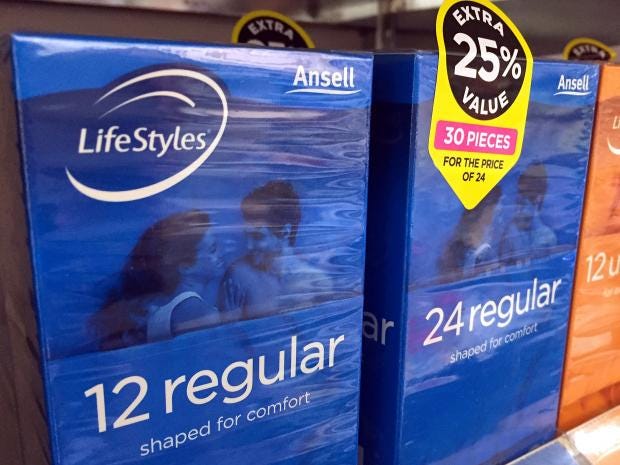Rio 2016 Olympics: Australian athletes to be given anti-Zika virus condoms as 'a common sense approach'

Starpharma Holdings and Ansell combined to produce the Dual Protect condoms. Reuters
Australian athletes at the Olympics in Rio de Janeiro will be supplied with condoms which manufacturers say will offer "near complete" antiviral protection against the Zika virus.
The Australian Olympic Committee announced the health measure for the Aug. 5-21 Olympics in a statement Monday, with the team's chef de mission Kitty Chiller saying distribution of the condoms was "a common sense approach to a very serious problem we are facing in Rio."
The mosquito-borne Zika virus is an epidemic in Central and Latin America, and the World Health Organization has declared it a global health emergency.
Zika causes mild illness or no symptoms in most people but is believed to be linked to a birth defect that causes babies to be born with unusually small heads.
Australian Stock Exchange-listed Starpharma Holdings and Ansell combined to produce the Dual Protect condoms, which provide protection via the physical barrier and a lubricant that contains an antiviral agent that counteracts viruses that cause sexually transmitted infections.
Starpharma said in a statement its lubricant showed near-complete antiviral protection against Zika in laboratory studies.
Other countries are taking precautions ahead of the games including the United States, which sends the biggest delegation to the Olympics.
The U.S. Olympic Committee has formed a group that will establish best practice and information for athletes and officials traveling to Brazil.
Capt. Martin S. Cetron from the Centers for Disease Control, is on the panel.
The CDC's most recent advice was for pregnant women to consider not going to the Olympics and for their male sexual partners to use condoms after the trip or abstain from sex during the pregnancy.
The CDC also recommends that all travelers use insect repellent while in outbreak areas and continue to use it for three weeks after travel in case they might be infected but not feel sick.
Associated Press







